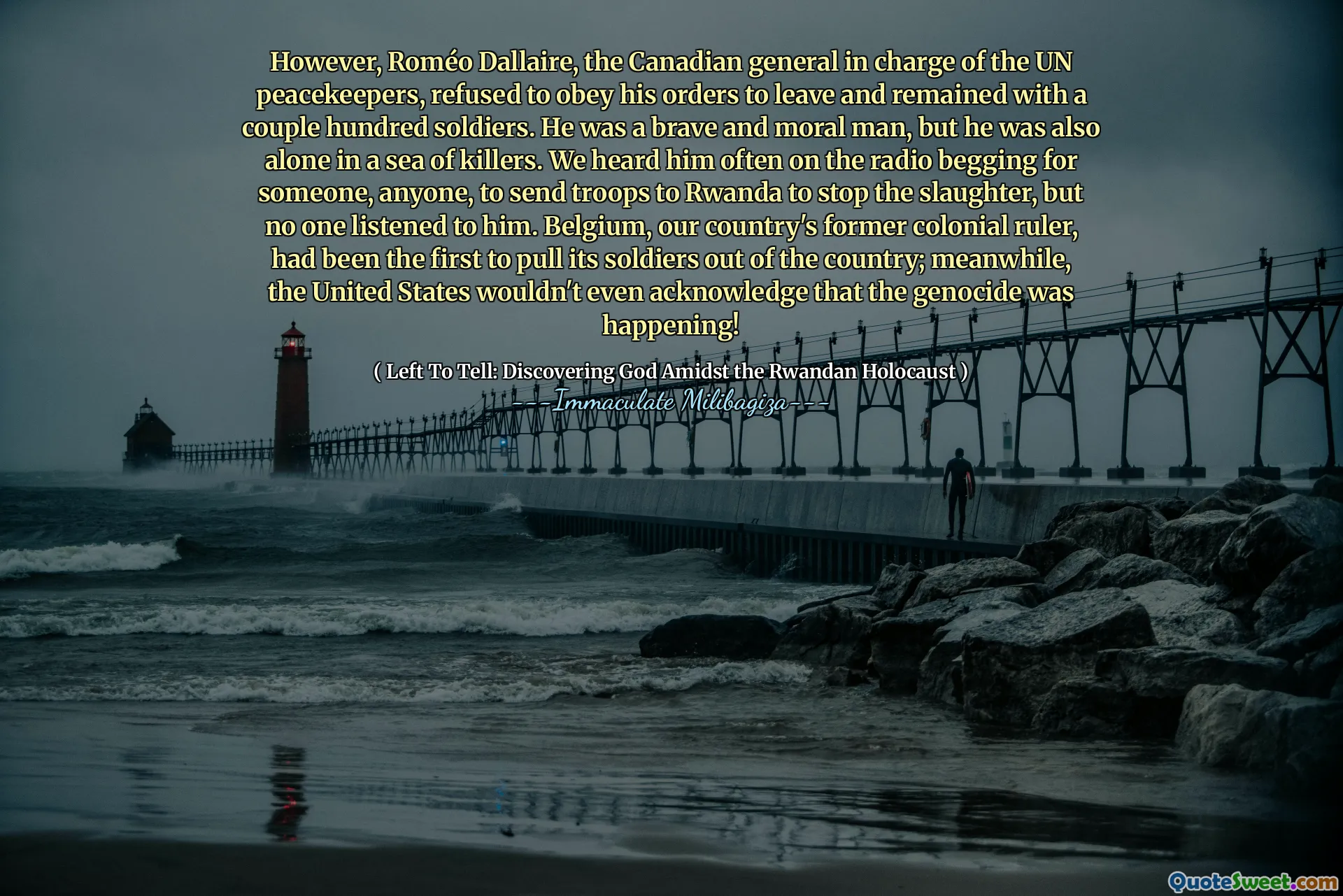
However, Roméo Dallaire, the Canadian general in charge of the UN peacekeepers, refused to obey his orders to leave and remained with a couple hundred soldiers. He was a brave and moral man, but he was also alone in a sea of killers. We heard him often on the radio begging for someone, anyone, to send troops to Rwanda to stop the slaughter, but no one listened to him. Belgium, our country's former colonial ruler, had been the first to pull its soldiers out of the country; meanwhile, the United States wouldn't even acknowledge that the genocide was happening!
📖 Immaculee Ilibagiza
This quote powerfully highlights the harrowing reality faced during the Rwandan genocide and the international community’s tragic failure to intervene. Roméo Dallaire’s unwavering moral stance exemplifies the courage required of individuals who operate in systemic contexts of neglect and inaction. Despite orders to leave, Dallaire chose to stay, risking his life to save as many lives as possible within the chaos, embodying moral integrity amidst overwhelming horror. His desperate pleas for assistance, broadcasted over radio, underscore a crippling silence from global powers. The initial withdrawal of Belgian troops and the United States' refusal to acknowledge the genocide reveal how post-colonial and geopolitical interests can sometimes overshadow humanitarian crises. It raises profound questions about collective responsibility and the international community’s moral obligation to prevent atrocities. This quote serves as a stark reminder of the devastating consequences when nations turn a blind eye to human suffering, prioritizing political convenience over ethical action. The narrative inspires reflection on the importance of proactive intervention, moral duty, and the courage of individuals like Dallaire who choose to stand against institutional neglect for the sake of humanity. It underscores the imperative for global awareness and responsibility to prevent history from repeating such tragic indifference and unchecked violence.






